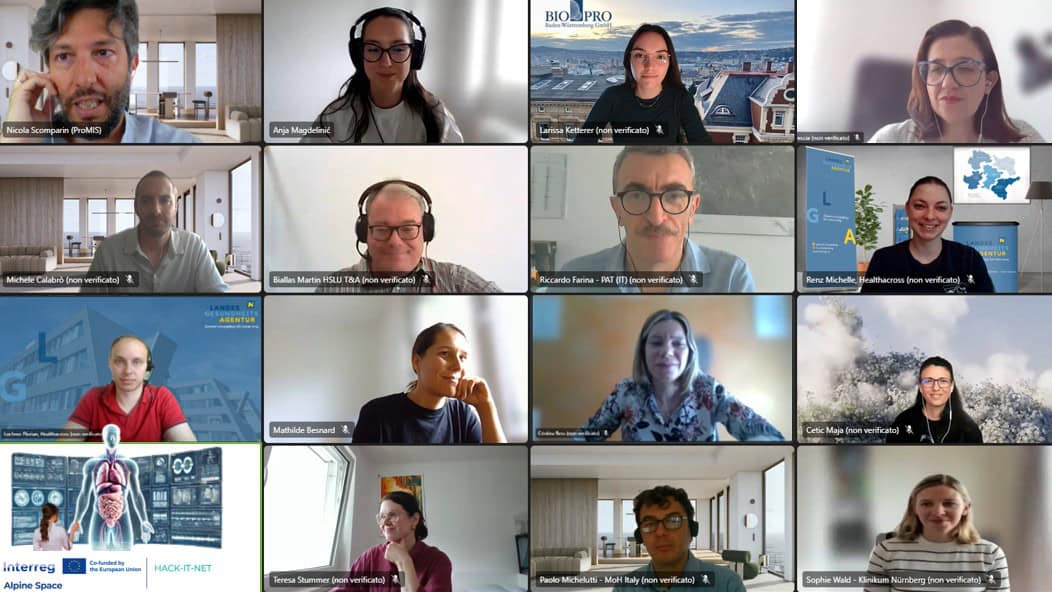On July 11th, 2025, the HACK-IT-NET project hosted its first Advisory Board online meeting, bringing together high-level strategic and pilot observers from across the Alpine Space. The session—titled “Fostering future collaboration through social innovation and multi-stakeholder engagement“—aimed to gather insights and feedback to guide regional exploitation strategies and strengthen the project’s uptake communities.
The meeting opened with a concise introduction to HACK-IT-NET’s mission: to build a robust, transnational framework for innovation transfer in health and care by connecting Alpine stakeholders with research, technology, and entrepreneurial ecosystems. The project seeks to contribute to greener, more digital, and more resilient health systems in line with EU policy goals and Sustainable Development Objectives.
During the session, Advisory Board members were invited to:
- Share institutional expertise and expectations from the project,
- Reflect on possible synergies with ongoing initiatives,
- Discuss how they wish to be engaged moving forward (HACK-ITathons, workshops, events, newsletters, etc.),
- Suggest opportunities to disseminate HACK-IT-NET outcomes within their networks.
A key highlight of the meeting was the presentation of the “Health & Care actor-focused innovation transfer toolkit”—a curated resource designed to support local actors in engaging stakeholders, implementing innovative approaches, and scaling impact. The Toolkit features:
- 44 multi-stakeholder engagement methods,
- 28 practical use cases across diverse settings,
- Guidance for matching tools to specific innovation needs and user groups.
The meeting also showcased a visual summary of the core challenges faced by health systems in the Alpine Space, presented through the infographic recently developed within the project. The infographic synthesizes the results of 101 interviews conducted across six countries, highlighting key issues such as workforce shortages, digital divides, and the limited integration of green strategies in care delivery. These insights will directly inform upcoming pilot actions and transfer activities (see dedicated news)
With a strong commitment to co-creation and mutual learning, the Advisory Board’s contributions will continue to play a key role in aligning project outcomes with real-world needs across Alpine regions.
Next steps include the launch of regional pilots, further development of the Network Operating Model, and continued engagement through dedicated “APPROACH” meetings and knowledge-sharing events.


